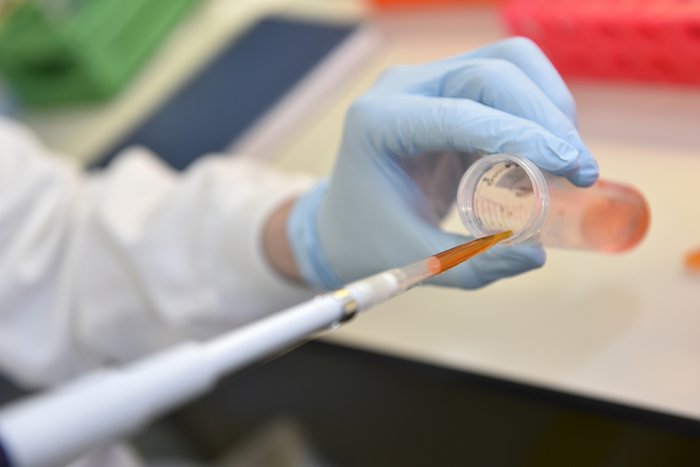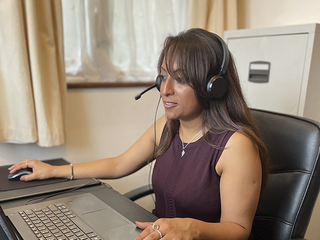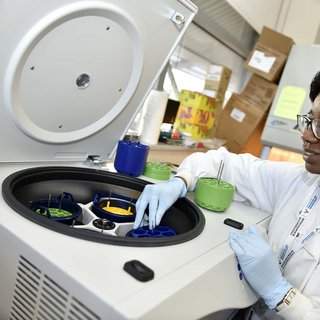What else can we use to protect people with blood cancer from covid?
We spoke to Professor Andrew Ustianowski, the clinical lead of a trial called PROVENT, to find out about alternative methods that might protect people with blood cancer from covid.

The covid vaccines offer hope for people with blood cancer who have been shielding for over a year due to the threat of catching the virus. Having said this, we know from previous vaccination programmes that vaccines don’t tend to work as well in people with blood cancer and initial research suggests that this might be the case for the covid vaccines too. As some of the most vulnerable people to covid, it’s important we find a “Plan B” for people with blood cancer, if the covid vaccines aren’t as effective as hoped.
What alternatives to vaccines might be available to people with blood cancer?
Professor Andrew Ustianowski: “Vaccines work by stimulating the immune response to produce antibodies and immune cells that help prevent infection. If this is not possible then another route being explored is providing people with an injection or infusion of artificial antibodies that would hopefully prevent infection and that would likely last several months. These are being studied at the moment.”
What is the PROVENT trial studying?
“PROVENT is a trial of one of these artificial antibody treatments. It is looking at a combination of antibodies given as an injection into the muscle to prevent covid. It has fully recruited participants around the world and we are following these people over time to see if they are protected from covid or not.”
Is this similar to other treatments like Regeneron?
“There are several different companies making these antibodies, known as monoclonal antibodies. The antibodies are all a little different, targeting different parts of the virus as well as perhaps being given to patients in different ways. Some treatments might be given in a vein and some might be given in a muscle. The treatments might also last different amounts of time until another injection or infusion is required to keep the levels up.”
How do monoclonal antibody treatments destroy viruses?
“These antibodies have been designed to attach to the virus and prevent it being able to infect cells which would stop it from causing infection. Most of these antibodies block the area on the virus’ spike protein that it uses to attach to the cell it is trying to infect.”
Who could receive this treatment?
“In theory, if proven to be effective, this could work for anyone. However, most will hopefully receive protection through vaccination. We are therefore thinking that these antibody treatments are most likely to be used for those who cannot receive the vaccines or those with poor or weakened immune systems who may not be able to develop good immunity from vaccination.”
How and when can I receive this treatment?
“It is important that we try and ensure all members of our population are protected from covid. However, we need to know how effective these treatments are, and we do not yet have sufficient data on this yet. We hope that we will get more data in the next couple of months, but even if this is positive it will need to be reviewed before it could become available routinely.”
Would the treatment work against any new COVID variants that appear?
“This is an area of active research. Viruses mutate and there are thousands of variants out there, but most don’t affect how the virus behaves or how antibodies stop the virus from infecting us. There are some variants that seem less sensitive to the vaccines and potentially some of the antibody treatments, but these are currently rare in the UK and many other places. Most of the antibody treatments are actually combinations of antibodies so that it is less likely the virus will be able to ‘escape’ the treatment.”
When can we expect to see results?
“I would hope we have data from the PROVENT study within the next two months or so. We may also start seeing data from similar monoclonal antibody treatments in the next few months.”
We’ll continue to monitor the studies and bring you any updates as and when we hear them. If you’d like to keep up to date with latest news, you can sign up to our e-newsletter here.

Worried about anything or have questions?
If you need someone to talk to, please don't hesitate to contact our Support Service by phone or email.

